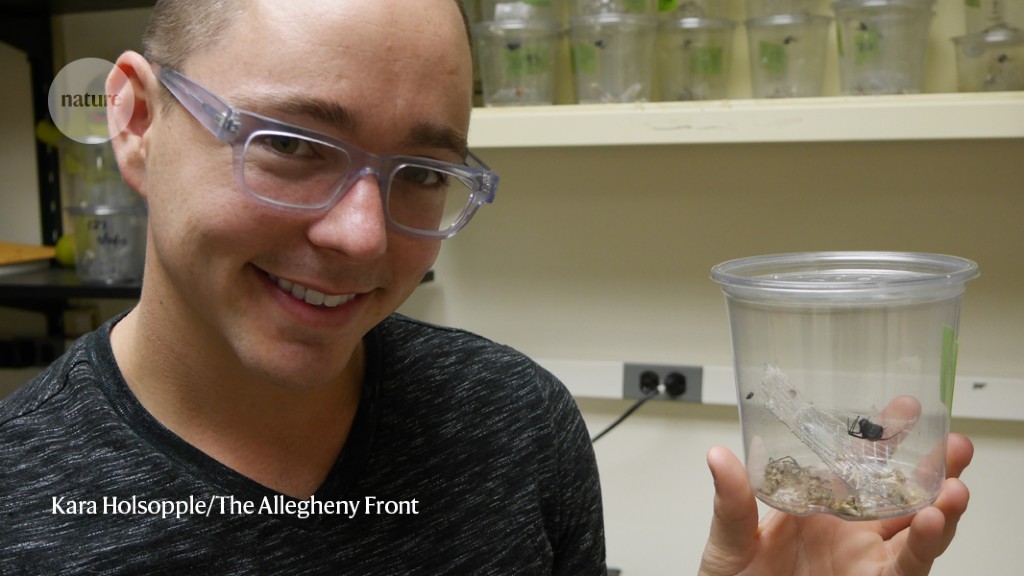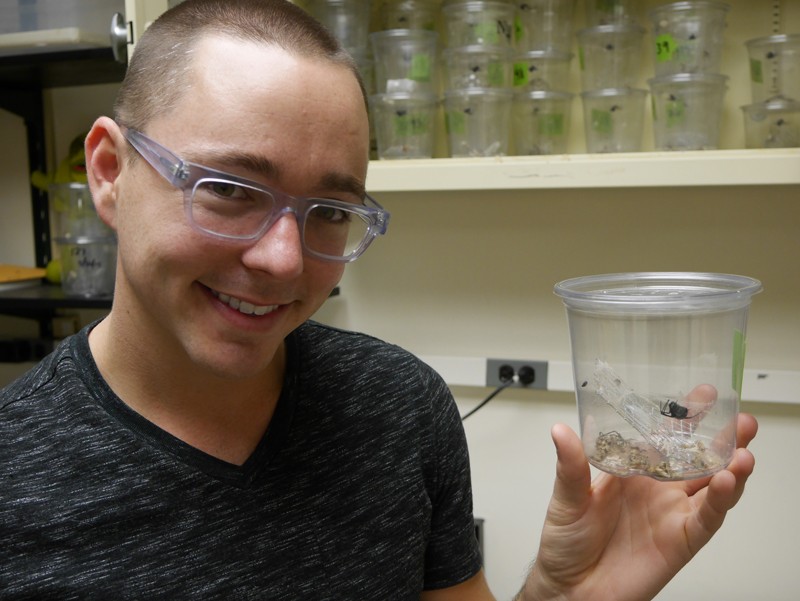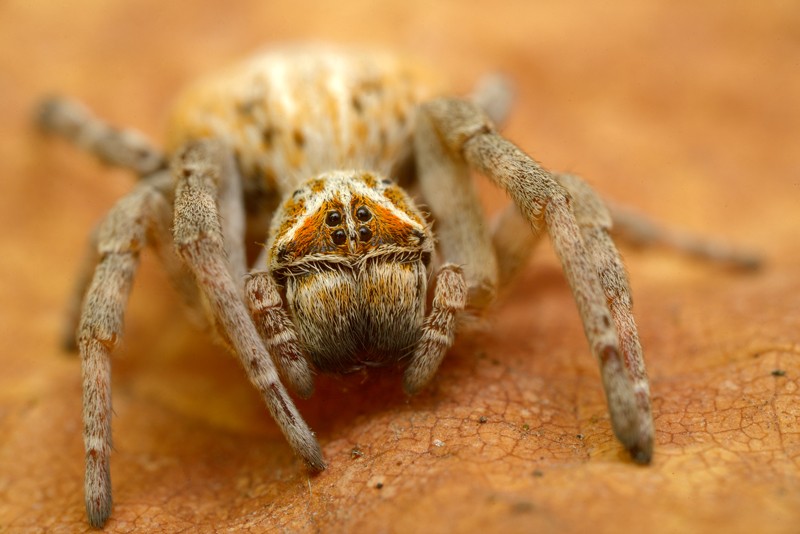After more than two years of allegations over data irregularities in his publications, Jonathan Pruitt, a behavioural ecologist and rising star in the field of spider behaviour, resigned from McMaster University in Hamilton, Canada, in July. The resignation marks a turning point in a painful saga — but Pruitt’s former lab members and collaborators told Nature that they want more closure, as they continue to deal with the fallout. Aside from the time wasted on studies that are now retracted, they have struggled with the stigma of being associated with alleged misconduct and have found it difficult to once again trust co-workers and collaborators.
The university concluded an investigation into the matter in late 2021 but has not released its outcome, and revealed last month that it had reached a confidential settlement with Pruitt.
For those who have spent years combing through data to comply with university investigators and talking with journal editors about retractions, this resolution is particularly unsatisfying, says Kate Laskowski, a behavioural ecologist at the University of California, Davis, who collaborated with Pruitt on several projects. Since allegations of data fabrication emerged in early 2020, at least 13 of Pruitt’s papers have been retracted, and 6 others have been labelled with expressions of concern.
Michelle Donovan, a spokesperson for McMaster, says Pruitt’s actions have been addressed appropriately, according to the university’s research-integrity policy. Despite the settlement, which Donovan declined to comment on, Pruitt remains in McMaster’s ‘hearing process’ — usually reserved for serious allegations of academic misconduct. Pruitt, now a science teacher at Tampa Catholic High School in Florida, declined to comment for this story.
Shocking discoveries
Around the turn of the decade, Laskowski’s future looked bright: she had landed a coveted professorship at the University of California, Davis, and was ready to open her own laboratory exploring animal behaviour. Together, she and Pruitt had been studying social interactions among spiders. Then in late 2019, a researcher informed Laskowski of data irregularities in a 2016 study1 that she had co-authored with Pruitt.
When Laskowksi dug into data sets that Pruitt had provided for the study, she was shocked to find stretches of data that seemed to have been duplicated, to represent findings for multiple spiders. This questionable data helped to bolster a long-unproven theory that repeated social interactions in a group of spiders cause individuals to behave predictably.
Pruitt’s explanation for the data irregularities did not satisfy Laskowski, so she contacted the journal. Two of Laskowski’s papers were retracted within months. Eventually, 55 researchers would end up listed as a co-author alongside Pruitt on studies with a retraction or expression of concern.
“I was shocked at how obvious the discrepancies were,” says Lena Grinsted, an evolutionary biologist at the University of Portsmouth, UK, who had collaborated with Pruitt on a 2013 paper that was later retracted. “Once people started looking into it, they were everywhere.”
James Lichtenstein, an evolutionary ecologist at Yale University in New Haven, Connecticut, who was one of Pruitt’s graduate students at the time, says it is not surprising that no one noticed irregularities before the scandal erupted. “You wouldn’t think to question your own adviser’s data,” he says.
Time lost
Pruitt’s collaborators say the rush of retractions has affected their careers. Laskowski estimates that, for nine months after the scandal broke, she spent most of her time delving into five-year-old data sets and dealing with lawyers and journal editors. As her lab was being set up, she says, “it was supposed to be this beautiful year where I could learn new skills or think of new research ideas”. Instead, she recalls that her department chair called it her “sabbatical year”.
Lichtenstein’s doctoral graduation was delayed by months. Although he later secured a postdoctoral position, he worried that, when it came time to apply for jobs, association with Pruitt would be a red flag. “I didn’t want to sweep it under the rug, but I also didn’t want to talk about it too much,” he says.
Thinking about all the time spent working on research that no longer carries credence was a “mourning process”, Lichtenstein says. “It’s not often in your life you see something so surreal happen, something that doesn’t fit into the rules of how the world works,” he says. “It breaks your brain a bit.”
Grinsted worries that the retractions might have affected her ability to attract funding, given that grant panels consider previous publications: she estimates that the retracted studies she co-authored with Pruitt represent about one-tenth of all her publications.
Pruitt’s collaborators say the ordeal continues to affect their mental health. “It’s like a little monster that keeps popping up in random conversations,” Lichtenstein says. And Grinsted says it has made her “annoyingly” suspicious, such that she sometimes reviews data from collaborators with extra scrutiny.
These feelings are difficult to reconcile given that open collaboration is an essential part of scientific research, says David Fisher, who was one of Pruitt’s postdocs and now works as an evolutionary ethologist at the University of Aberdeen, UK. “We researchers can’t exist in a world where you can’t trust anyone,” he says.
Looking for closure
Scientists also complain that McMaster’s investigation lacked transparency, and that the university has made contradictory public statements. The university told witnesses in the case that its investigation had concluded in November 2021 and it had placed Pruitt on paid administrative leave. Yet it requested that witnesses testify in a series of “research misconduct hearings” in 2022, which were then cancelled following notice of the settlement. Despite these cancellations, Donovan says the university is still continuing the hearing process.
Asked about the university’s lack of transparency, Donovan, McMaster’s spokesperson, says the university cannot release more information, owing to Ontario’s privacy laws. According to the university’s research-integrity policy, even if Pruitt is found guilty of misconduct by the hearings committee, McMaster is not obligated to publicly release either the outcome or its investigation report.
The lack of an investigation report has been “hindering scientific progress”, Laskowski says. Several journals that published papers co-authored by Pruitt have been waiting for the results to make a final decision on retraction, says Susan Healy, a biologist at the University of St Andrews, UK, who is the publication-ethics editor at one of the journals, Animal Behaviour. Absent a report detailing wrongdoings, any study that bears Pruitt’s name has a stigma associated with it, Laskowski says, even if he didn’t provide any data for the study, which is unfair for researchers whose studies are otherwise rigorous.
The scandal should serve as a wake-up call to scientific journals, says Dan Bolnick, an evolutionary biologist at the University of Connecticut in Storrs and the editor-in-chief of The American Naturalist. Bolnick led an investigation into studies Pruitt published in his journal and ultimately decided to retract some of them. In future research-misconduct cases, more journals should conduct their own investigations, rather than wait for universities, to correct the scientific record more quickly, he says.
Animal Behaviour did not wait for information from McMaster to retract papers for which sufficient information was available to reach a decision, Healy says. But for other papers marked with an expression of concern, the journal is waiting to see whether further pertinent information becomes available, she adds.
At Nature, where one Pruitt paper is labelled with an expression of concern2, “our investigation into the issues raised is still ongoing”, says a spokesperson for the journal. “Once this has concluded and we have the necessary information to make an informed decision, appropriate editorial action will be taken.” (Nature’s journals team is separate from its news team.)
Donovan denied claims that McMaster has been hindering scientific progress, noting that journals are “responsible for reviewing their own content and at any time can undertake their own processes”.
As difficult as the last two years have been, this incident has prompted a reckoning in the animal-behaviour field about how to have positive collaborations and publish reproducible studies, Grinsted says. Journals in behavioural ecology have adopted higher standards for data archiving and more often check to ensure researchers follow these guidelines, Bolnick says. Animal Behaviour, for example, created a dedicated publication-ethics editor role as a result of the scandal, Healy says.
For Laskowski, one positive outcome is that she’s learnt plenty about reproducible and transparent science, and even mentors other researchers in similar situations. But she hopes that, one day, she will be better known for her research than for being tied to a scandal.










More News
Retractions are part of science, but misconduct isn’t — lessons from a superconductivity lab
Valleytronics in bulk MoS2 with a topologic optical field – Nature
Are robots the solution to the crisis in older-person care?